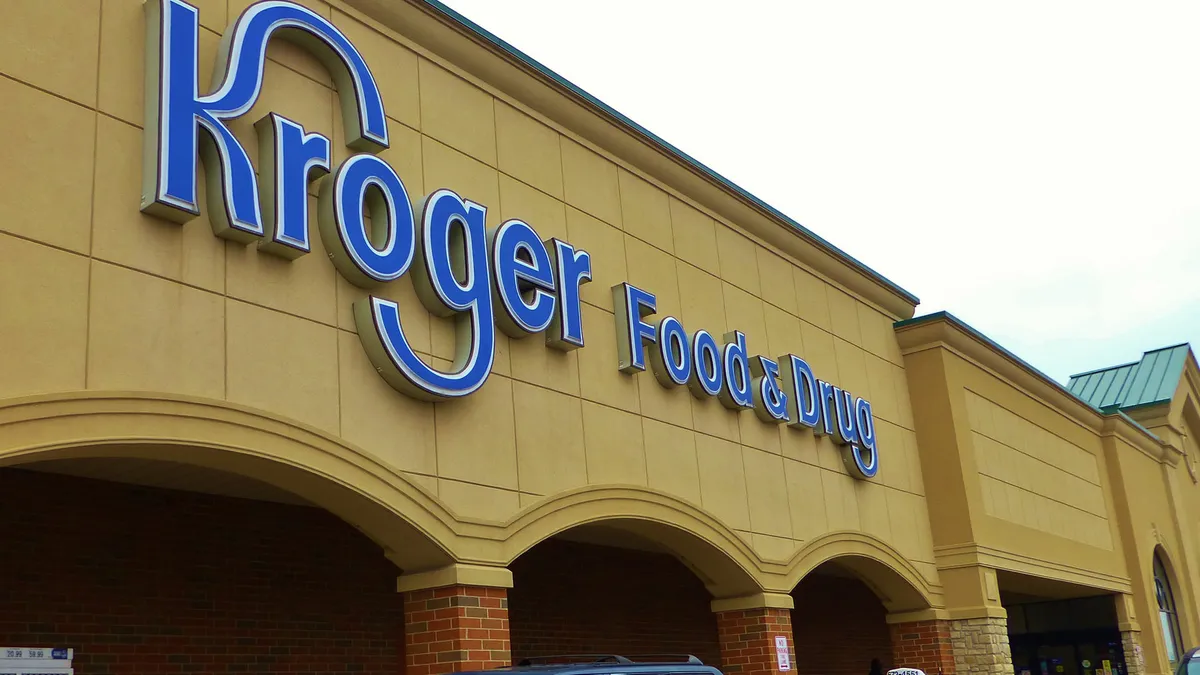Dive Brief:
- Kroger noted in a regulatory filing that it will contribute up to $1 billion to its “underfunded” employee benefits plans, according to Reuters.
- The company sees the contribution as a “strategic opportunity” given current interest rates, possible changes to the U.S. tax code and other factors. Kroger plans to pay the contribution through company debt, and noted the move shouldn’t affect its credit rating or overall financial outlook.
- The grocer, which last month lowered its earnings forecast, said it expects talks with employee unions to be challenging as it tries to keep costs competitive.
Dive Insight:
In a highly competitive grocery space, companies are vying for good employees as well as customers. Throughout the industry, retailers have been increasing starting wages, adding staff members in key departments and offering raises, bonuses and other perks meant to keep turnover rates down. With unemployment hovering just above 4% right now in the U.S., the pressure is on employers to make workplaces attractive to prospective staff members.
Since 2015, Walmart has spent around $3 billion to increase wages across its company. Whole Foods offers pay that’s above minimum wage in the states where it operates. Costco pays many of its workers $20 an hour and up, and Publix offers all its workers an ownership stake in the company.
Kroger, meanwhile, has been selectively increasing its pay for workers throughout the company while also adding employees in stores. Its employee benefits fund, the company noted, is “underfunded” and needs to increase in order for the grocer to remain competitive and retain workers.
The move, which pushes Kroger’s debt to more than $14 billion, isn’t ideal for a company that’s been struggling lately. Price-focused competitors such as Walmart and Aldi, as well as conventional grocers that have caught up to Kroger’s diverse, data-focused approach, have put major pressure on the company. The company cut its profit outlook by 10% last month, and the retailer’s stock price has plummeted since Amazon announced its plan to acquire natural and organic retailer Whole Foods.
Analysts see a bumpy road ahead for Kroger, and managing labor costs will no doubt be a chief concern. The grocer has said it expects union negotiations to be challenging in the years ahead as it tries to stay price competitive. Walmart, as well as Amazon and Whole Foods, on the other hand, are non-union and could use this to their advantage in bringing down prices.










